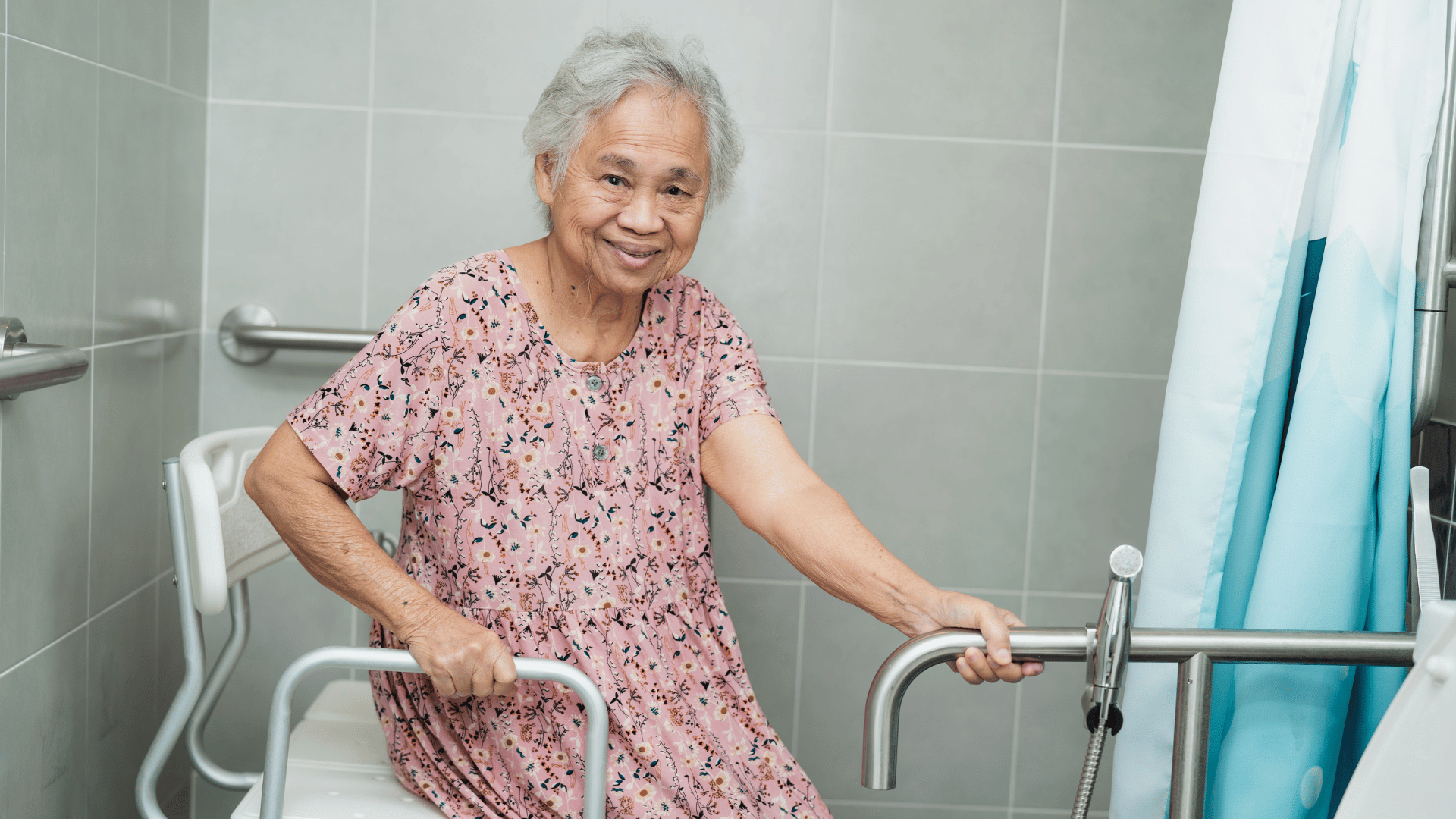
Bathing is an essential part of daily hygiene, but for seniors, it can become a challenging and even risky activity. Age-related changes, such as reduced mobility, balance issues, and sensitive skin, can make independent bathing difficult. Understanding how to create a safe environment and when to seek bathing assistance for seniors can help maintain dignity and improve the quality of life for aging individuals. This guide covers the best practices for bathing for seniors, safety tips, and the benefits of professional help from caregivers.
Why Bathing Can Be Challenging for Seniors
As people age, physical and cognitive changes can make bathing a difficult task. Here are some common challenges seniors face:
- Limited Mobility: Arthritis, joint pain, or muscle weakness can make stepping into a bathtub or standing for long periods difficult.
- Balance Issues: Many seniors are at risk of falls, especially in wet and slippery areas like bathrooms.
- Cognitive Impairments: Conditions like dementia or Alzheimer’s can cause confusion or anxiety during bathing.
- Skin Sensitivity: Aging skin tends to be more delicate and prone to dryness, making it important to use gentle products.
Essential Safety Tips for Bathing Seniors
Ensuring a safe bathing environment is critical for seniors’ well-being. Here are some practical tips to make bathing safer and more comfortable:
- Install Grab Bars and Rails: Placing grab bars in the shower and near the toilet can provide extra stability for seniors who struggle with balance. Ensure they are properly installed and can support weight.
- Use a Shower Chair or Bench: A sturdy shower chair allows seniors to sit while bathing, reducing the risk of falls. This is especially helpful for those with limited mobility or those who tire easily.
- Place Non-Slip Mats: Bathrooms are one of the most common places for falls in the home. Placing non-slip mats inside and outside the tub or shower area can prevent slipping on wet surfaces.
- Handheld Showerheads: Handheld showerheads make it easier for seniors or caregivers to control the water flow. This is particularly useful for seniors who use a shower chair, allowing them to wash without the need to stand.
- Check Water Temperature: Seniors often have thinner skin, which can be sensitive to temperature changes. Use a thermostatic mixing valve or test the water before starting the bath to prevent burns or discomfort.
The Role of Caregivers in Bathing Assistance
Caregivers play a vital role in providing bathing assistance for seniors. Whether the caregiver is a family member or a professional, their involvement can make the bathing process safer and more comfortable. Here’s how caregivers can help:
- Providing Physical Support: A caregiver can assist with getting in and out of the shower or tub, reducing the risk of falls during transitions.
- Assisting with Washing: For seniors with limited range of motion or cognitive challenges, a caregiver can help wash hard-to-reach areas while maintaining the individual’s dignity and comfort.
- Ensuring Privacy and Dignity: Respecting the senior’s need for privacy during bathing is crucial. Caregivers should communicate each step of the process, ensure the bathroom is warm, and provide towels or robes for quick covering.
- Monitoring Skin Health: Caregivers can keep an eye on changes in the senior’s skin, such as redness or dry patches, and recommend moisturizers or consult with a healthcare professional if needed.
When to Seek Bathing Assistance
For many families, the question arises of when to seek professional bathing assistance for seniors. Knowing when to bring in help can enhance the senior’s safety and give family members peace of mind. Here are some signs that it might be time for professional bathing assistance:
- Frequent Falls or Near-Misses: If a senior has had recent falls or near-falls in the bathroom, it may be time to consider professional help.
- Increased Anxiety About Bathing: Seniors with dementia or other cognitive impairments may become agitated or anxious during bath time. A professional caregiver trained in working with these conditions can make the experience smoother.
- Difficulty Managing Personal Care: If a senior struggles to wash effectively or misses areas, they may be at risk of skin infections or hygiene-related issues. Professional caregivers ensure thorough and safe bathing.
- Physical Limitations: Seniors recovering from surgery or dealing with severe arthritis may find it too painful to bathe alone, making professional help a beneficial option.
Benefits of Senior Caregivers
Hiring professional caregivers for bathing assistance for seniors offers many advantages. At SeniorCare Companions, our trained staff provides compassionate care that prioritizes safety and comfort. Here’s how professional help can benefit seniors and their families:
- Specialized Training: Professional caregivers are trained to handle different physical and cognitive conditions, ensuring that seniors receive the care they need.
- Personalized Care Plans: Services can be tailored to meet the specific needs of each senior, whether they need full assistance or just a bit of support during bathing.
- Enhanced Safety: Caregivers understand how to safely assist seniors in the bathroom, minimizing the risk of falls or other accidents.
- Peace of Mind for Families: Knowing that a loved one is receiving proper care can alleviate stress for family members who may not be able to provide the necessary support.
Tips for Making Bathing a Positive Experience for Seniors
Beyond safety, it’s important to create a positive bathing experience for seniors. Here are a few ways to make the process enjoyable:
- Warm the Bathroom in Advance: A warm room can prevent chills, making the senior more comfortable during and after the bath.
- Play Soft Music: Music can create a calming atmosphere, especially for those who might be anxious about bathing.
- Use Scented Bath Products: Mildly scented soaps or bath oils can make the experience more pleasant, as long as they are suitable for sensitive skin.
- Encourage Independence When Possible: Even if a senior needs some help, allow them to do as much as they can on their own to maintain a sense of independence and dignity.
Prioritizing Safety and Dignity
Bathing is a crucial aspect of daily hygiene that can pose challenges for many seniors. By creating a safe environment, offering the right bathing assistance for seniors, and knowing when to seek professional help, families can ensure their loved ones stay clean, comfortable, and safe. At SeniorCare Companions, we are dedicated to providing compassionate, high-quality care that helps seniors maintain their independence and dignity, even in daily activities like bathing.
If you or your loved one could benefit from professional bathing assistance for seniors, contact us today to learn more about our personalized caregiving services. We are here to help make daily living safer and more comfortable for your family.

